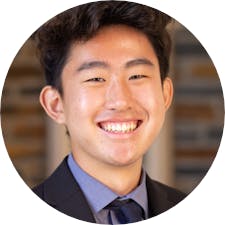A Durhamite since 2014, social justice advocate Khalilah Karim’s election bid for Durham City Council relies on three core tenets: community, economy and the environment.
Karim was the fourth-highest polling candidate in Durham’s primary municipal elections on Oct. 10, garnering 12.21% of the vote. She will face Nate Baker, Javiera Caballero, Carl Rist and Monique Holsey-Hyman in the general election on Nov. 7 for the Council’s three at-large seats.
Karim has previously worked with various unions, climate change organizers and social justice movements in the community. She is a member of the Service Employees International Union and has partnered with various public and private sector workers to build unions from the ground up.
As the regional field director for the North Carolina League of Conservation Voters, Karim is a major proponent of accessible greenspace and the fight against climate change. For the past five years, she has worked with the League to push back the effect of climate change in minority communities.
If elected, Karim pledges to invest in green energy, inter-city transportation and parks in hopes of cultivating a healthy environment focused on sustainability.
“With all of us feeling the current effects of climate change, the need for aggressive action on environmental sustainability has never been more important,” Karim told IndyWeek. “From green infrastructure in building (such as solar panels) to ensuring access to alternate means of transportation (such as bike lanes and covered bus stops), Durham needs to invest in our future.”
Karim also highlights the importance of community-building as a solution to systemic inequity. She calls for investment in marginalized communities, specifically resources that "provide additional avenues for Black homeownership" and combat gentrification and homeownership issues in minority communities.
Under her commitment to community-building, Karim hopes to expand funding for service-based programs in the City, such as the new Holistic Empathetic Assistance Response Teams initiative, a crisis response program that works to enhance public safety.
“HEART has been an incredible success in just over a year of operations and is already serving as a model for cities around the country,” Karim said. She said funding in future budgets for HEART will allow the program to run 24 hours a day, calling it an “incredible resource.”
Her final pillar, the economy, will focus specifically on housing opportunities and creating living-wage jobs.
On her campaign website, Karim calls for investing in eviction diversions and permanent affordable housing to support robust economic opportunities for families.
“Strategic investments in affordable housing, down payment assistance for first-time homebuyers, and low-income property tax assistance can allow Black and brown families to build wealth and set their children up for success,” Karim said.
However, Karim is concerned about balancing expanding infrastructure with environmental sustainability, saying that despite environmental challenges, “people also need a warm place to sleep at night.”
Karim’s general plan aims to work behind the scenes to weed out sustainable suggestions to the Council, increase urban core density and consider harming reduction during zoning petitions.
Karim believes that her previous leadership experience with the SEIU has helped her understand the importance of relationships and supporting small businesses.
“As one of the largest employers in the city, Durham can and should lead by example,” Karim said. “This means a compensation package that gives our workers what they deserve. This can push up wages for everyone by creating competition in the marketplace.”
To find information on changes to voter registration and polling locations, read The Chronicle’s guide to voting in Durham's general elections.
Get The Chronicle straight to your inbox
Signup for our weekly newsletter. Cancel at any time.

Andrew Bae is a Trinity junior and an editor-at-large of The Chronicle's 120th volume.

